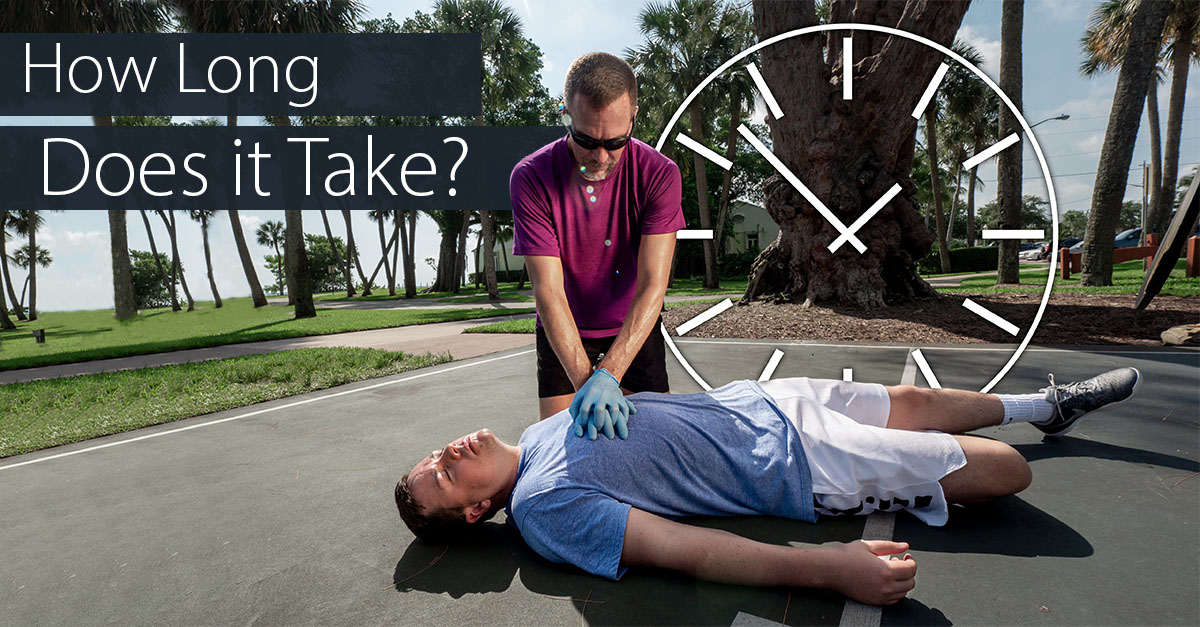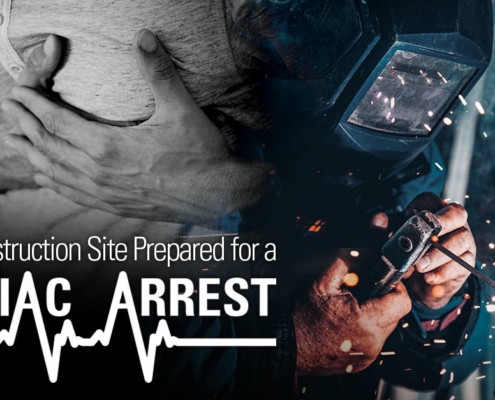How Long Does It Take?
When someone suffers from a heart attack or is in a serious accident, there are times when the affected individual could die in just a few minutes. In such a scenario, first responders may not be able to arrive to the scene in time to provide the necessary first aid. If, however, there are people nearby who know how to provide CPR and basic first aid, the affected individual may be able to stay alive long enough to receive treatment from first responders. This article takes a look at how fast various ailments can kill and how long it takes for first responders to arrive at the scene.
How Fast Heart Attacks, Physical Injuries, and Other Ailments Can Kill
Different ailments and physical injuries can kill a person in different time intervals. For instance, car and motorcycle accidents can range in severity. If the injury isn’t too severe, the individual should be fine until first responders arrive at the scene. However, serious injuries and ailments can kill someone in minutes.
Heart Attacks
Heart attacks are typically triggered by a blockage in the coronary artery. The heart muscles that receive blood directly from the affected artery will then start to die. The seriousness of a heart attack is usually determined by how much of the heart muscle dies. Anyone who is having a heart attack requires immediate medical attention, which will help to keep short-term and long-term complications to a minimum.
While many individuals who receive prompt treatment for a heart attack will be able to fully recover, it is also possible to suffer from cardiac arrest following a heart attack. A sudden cardiac arrest can cause death within minutes if not treated immediately. The most effective way to keep someone alive when they are suffering from cardiac arrest is to provide them with cardiopulmonary resuscitation, or CPR, along with the use of an Automated External Defibrillator (AED) if available.
There are a myriad of other injuries and health conditions that can lead to an individual dying in a very short period of time. Any severe injury that involves the pulmonary system, upper airways, or chest wall could be tended to with CPR. When performed correctly, you’ll be able to provide oxygen to the lungs until breathing can be fully restored. Because of how quickly various conditions can cause someone to die, knowing how to provide first aid and CPR may help you save lives.
How Long It Takes for First Responders to Arrive at the Scene
It’s important to be able to give first aid during an emergency because it can take some time for first responders to arrive at the scene. Whether they are responding to a car accident or a heart attack that happened at home, an available ambulance may not be nearby, which could increase wait times. The average time that it takes from calling 911 to having emergency medical services arrive is right around eight minutes in the U.S., which could be too long to wait for serious injuries or severe conditions like a sudden cardiac arrest.
While eight minutes is the average time to wait for first responders, it can take longer for individuals who live in rural areas. The average wait time in these areas is upwards of 14 minutes. The more alarming statistic is that 10 percent of people who live in rural areas wait up to 30 minutes for first responders to arrive. If first aid and cardiopulmonary resuscitation aren’t provided before first responders arrive, it’s likely that the affected individual will suffer from further complications and possibly death. Even if first responders arrive at the scene in just 3-4 minutes, the provision of early basic aid may be the difference between life and death.
Importance of Understanding Cardiopulmonary Resuscitation
When properly applied, CPR is able to keep oxygen and blood flowing, which significantly bolsters the possibility of survival for individuals who suffer from a cardiac arrest. It also greatly decreases the chances that the individual is affected by severe health complications as a result of the cardiac arrest. Since there is always going to be a wait time for first responders to arrive at the scene, it’s highly recommended that you learn how to provide first aid and cardiopulmonary resuscitation.
Heart disease is currently the leading cause of death throughout the country, which is partially caused by the fact that 88 percent of individuals who experience a cardiac arrest while not inside a hospital end up dying. Even though CPR doesn’t always keep the affected individual from dying, it makes it much more likely that first responders will arrive on time to administer a greater level of care.
Anyone can get CPR certified
It’s also important to understand that anyone can obtain a CPR certification. Earning this type of certification will give you the tools and confidence needed to transform from a helpless bystander to a lifesaver if ever you notice that someone is suffering from a cardiac arrest or other problems that could require first aid.
If you decide to obtain a CPR certification, the classes that you will be required to take before earning the certification are interactive and hands-on, which should help you learn how to effectively perform the necessary techniques, such as chest compressions. Upwards of 70 percent of all Americans feel like they are unable to help when a cardiac emergency occurs, which is a situation that obtaining this certification will help you avoid.
When you take courses for CPR, you will learn how to:
- Recognize and evaluate a cardiopulmonary emergency
- Alert emergency medical services
- Perform chest compressions at the proper rate and depth
- Provide the proper amount of ventilation
- Use an Automated External Defibrillator, or AED
- Place your hands at the correct locations
Because of how long it can take for first responders to arrive at the scene, you may find yourself in a situation where an individual needs to be resuscitated. To make sure that you understand how to react in this scenario, it’s highly recommended that you take steps to earn your CPR certification.












Hinterlasse einen Kommentar
An der Diskussion beteiligen?Hinterlasse uns deinen Kommentar!